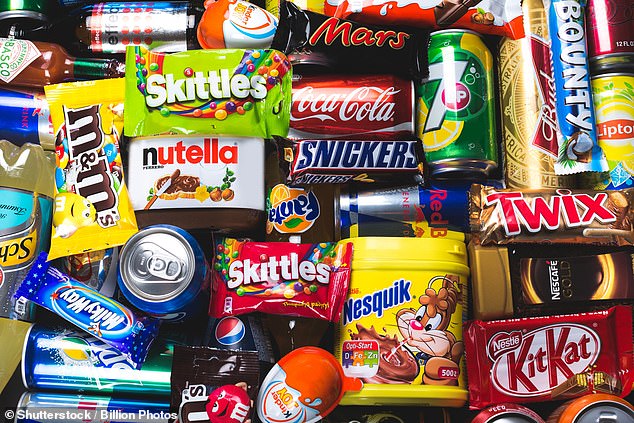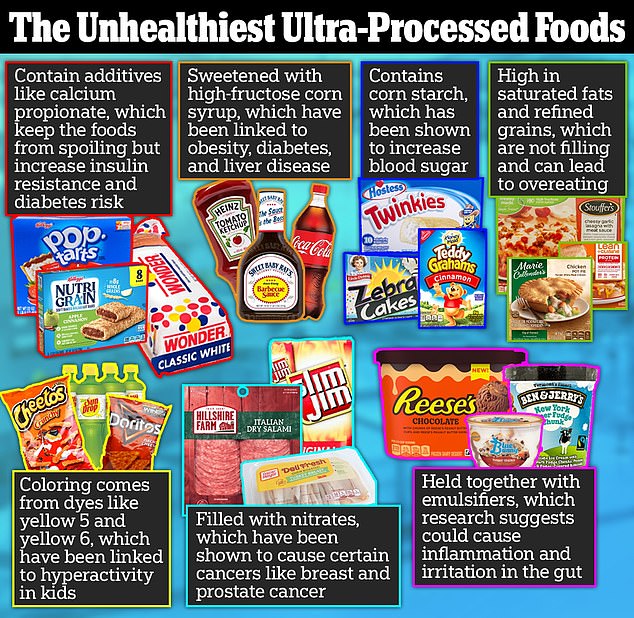Nearly nine in ten people in the UK say they’re unsure if they would be able to spot an ultra-processed ingredient on a food label, a survey suggests.
Ultra-processed foods (UPFs) – typically made with ingredients or additives you would not find in a home kitchen – now make up 60 per cent of the British diet.
Yet mounting evidence has linked them to a range of serious health conditions, including diabetes, heart disease and some cancers.
Now a new survey from nutrition tracking app Lifesum has found that just 12 per cent of Britons feel very confident identifying a UPF on packaging.
This could include emulsifers such as soya lecithin or monoglycerides, or preservatives such as sodium benzoate, among others.
A further 72 per cent were surprised to learn that products including oat milk, vegan meats and protein bars are classed as UPFs.
Some 61 per cent of the 5,000 people surveyed said that defining a UPF is more confusing than doing their taxes.
Despite the uncertainty, 68 per cent said UPFs negatively affect their mood, energy levels and productivity, while 41 per cent linked their mental health struggles to their diet.

Nearly nine in ten people in the UK say they’re unsure if they would be able to spot an ultra-processed ingredient on a food label, a survey suggests (Stock image)

‘This is no longer just a nutrition issue – it’s a societal one,’ said Signe Svanfeldt, lead nutritionist at Lifesum.
‘People know something’s wrong, but they’re misled by packaging that presents UPFs as healthy.
‘We’re sleepwalking into a national health crisis.’












